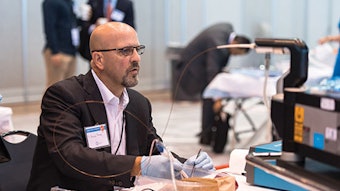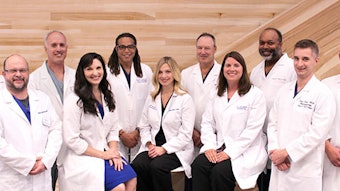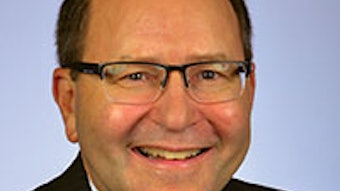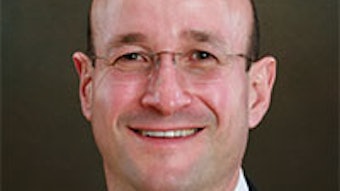The future is bright: Resident Reviewer Development Program exceeds expectations
In 2018, five out of 17 graduates of the Resident Reviewer Development Program (RRDP) will be awarded star reviewer status, a culmination of their hard work in the program and their outstanding independent reviewing for Otolaryngology–Head and Neck Surgery.
In 2018, five out of 17 graduates of the Resident Reviewer Development Program (RRDP) will be awarded star reviewer status, a culmination of their hard work in the program and their outstanding independent reviewing for Otolaryngology–Head and Neck Surgery. The awardees’ names will be published in the journal’s AAO-HNSF Annual Meeting program issue, and each will receive a Star Journal Reviewer ribbon to wear at the AAO-HNSF 2018 Annual Meeting & OTO Experience.
The RRDP pairs qualified PGY 3 and higher residents with top-performing reviewers for Otolaryngology–Head and Neck Surgery to develop the next generation of otolaryngology peer reviewers. While the program was created before the launch of the new Academy logo and before the rallying cry of “We Are One,” at its core it embodies the tenets of both with a total of 44 mentors and 45 resident mentees from across the globe representing all aspects of the specialty.
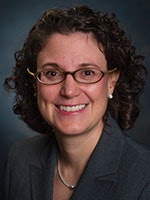 Cecelia E. Schmalbach, MD
Cecelia E. Schmalbach, MD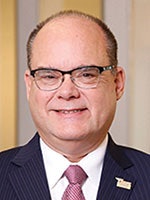 Jack Krouse, MD, PhD, MBA
Jack Krouse, MD, PhD, MBAJournal Editor in Chief, Jack Krouse, MD, PhD, MBA, and Deputy Editor, Cecelia E. Schmalbach, MD, saw both the interest in peer review from residents and the ever-growing need for quality peer review as an opportunity. In October 2015, they convened the Resident Reviewer Development Working Group, composed of editors, board members, star reviewers, and staff liaisons, to develop the pilot program that launched the following summer.
“The RRDP stemmed as a direct response to the talented and motivated group of residents interested in serving as peer reviewers,” said Dr. Schmalbach. “High-quality scientific review remains a cornerstone for our otolaryngology literature, yet educational training in the field was lacking. We recognized the opportunity to fill this knowledge gap through a single mentored program. In doing so, we continue to uphold our fiduciary role to researchers and patients while also fulfilling the important commitment to resident education. The response from residents and mentors was overwhelmingly positive. It is exciting to know that these graduates are the future of Otolaryngology–Head and Neck Surgery.”
Sarah N. Bowe, MD, editorial board member, star reviewer, and program mentor, elaborated on the intersection of residency education and the development of peer reviewers.
“Residency training is built upon educational principles and deliberate practice,” she said. “The Resident Reviewer Development Program provides this exposure through one-on-one pairing between exceptional reviewers and interested residents. Through this relationship, residents get very specific and detailed feedback on strengths and areas for improvement. As a result, residents gain knowledge and skills not only for becoming strong peer reviewers, but also for improving their own research endeavors and publications.
C. Scott Brown, MD, PGY-5, Chief Resident at Duke University, and a graduate of the program, confirmed the usefulness of peer reviewing in residency education.
“Taking part in the Resident Reviewer Development Program helped me develop tremendously as both a reader of research studies as well as an author,” he said. “To gain insight from one of the journal’s star reviewers, Dr. Bowe, was invaluable early in residency. I’m able to critically assess journal articles with greater ease, and I also learn fascinating new topics of research in my field of interest. When drafting my own manuscripts, I am able to better convey research hypotheses and findings for both reviewers and readers.”
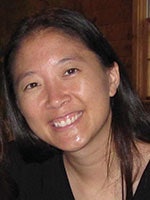 Jennifer J. Shin, MD, SM
Jennifer J. Shin, MD, SMThe vision and mission of the program continues under the guidance and leadership of the Deputy Editor-Elect, Jennifer J. Shin, MD, SM.
“I am glad to be part of an educational program that supports our residents,” said Dr. Shin. “I am impressed with the foundation work already done by Drs. Schmalbach and Krouse. It’s a unique program and a good fit for our Academy’s journal, as the AAO-HNS also has such a strong education mission.”
The program’s benefit to residents is evident in the experience relayed by Dr. Brown. Its benefit to the journal is quantifiable. As of this reporting, 17 graduates of the program have completed 108 independent reviews for Otolaryngology–Head and Neck Surgery with an average reviewer rating of 84.35 from the Editor in Chief—a rating that qualifies a review as “excellent.”
“I’m thrilled to see that our resident reviewer initiative has been so successful,” said Dr. Krouse. “When we first considered this program several years ago, it was apparent that our talented young residents would be an excellent pool of outstanding reviewers. We embarked on this project with the goal of enhancing the ability of these young physicians to successfully peer review submitted literature and provide guidance regarding disposition of papers. It’s clear that the program’s impact and success have surpassed our expectations.”
For more information on the Resident Reviewer Development Program, please contact the AAO-HNSF Editorial Office at otomanager@entnet.org.



